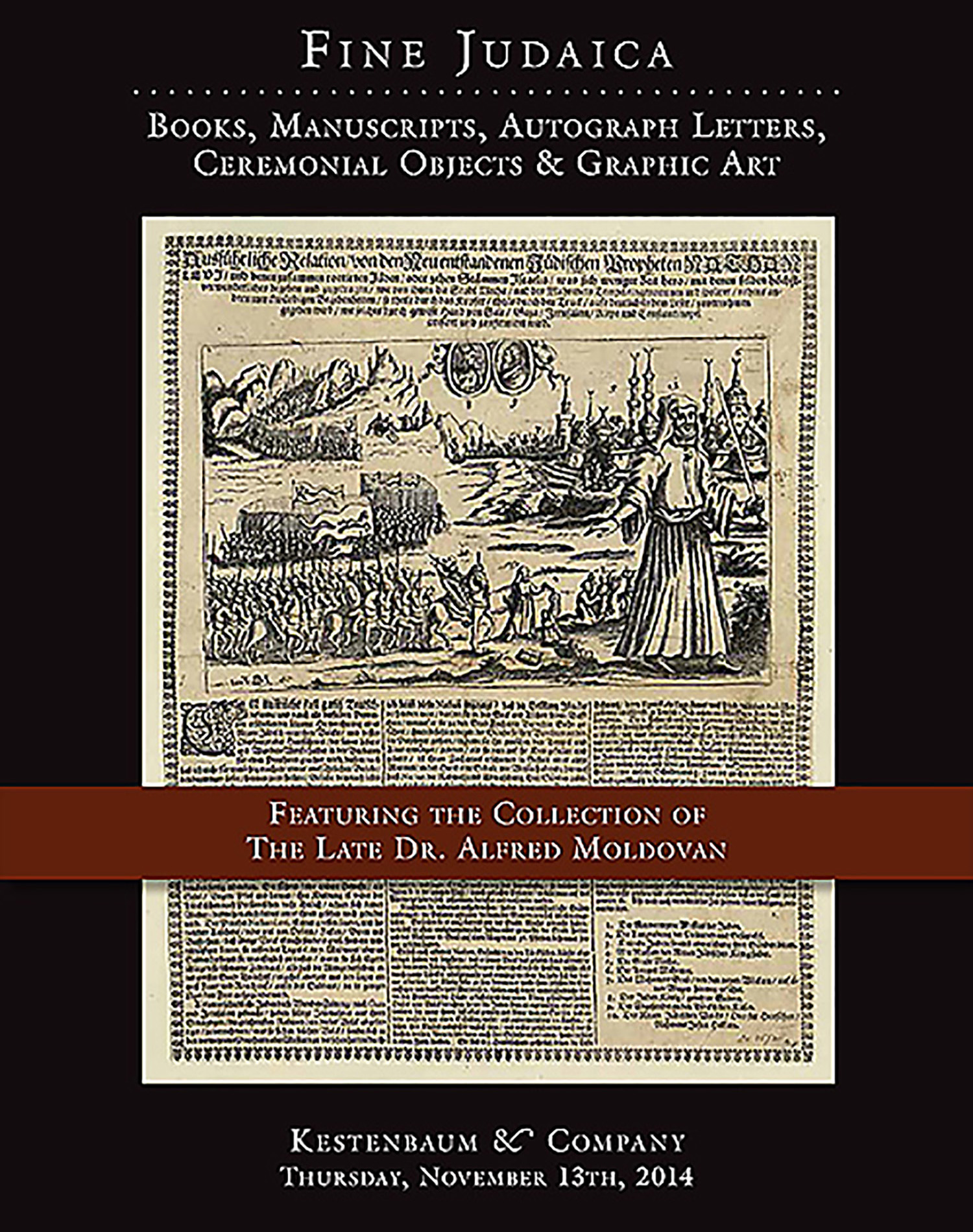Easter Eve. The “New Hagodoh shel Pesach.” A Metrical Family-Feast Service. Consisting of a prologue and one character poem, including the old traditions, legends, and melodies by Rabbi H. M. Bien.

AUCTION 63 |
Thursday, November 13th,
2014 at 1:00
Fine Judaica: Books, Manuscripts, Autograph Letters, Graphic and Ceremonial Art
Lot 18
(AMERICAN JUDAICA).
Easter Eve. The “New Hagodoh shel Pesach.” A Metrical Family-Feast Service. Consisting of a prologue and one character poem, including the old traditions, legends, and melodies by Rabbi H. M. Bien.
Cincinnati: Bloch 1886
Est: $5,000 - $7,000
PRICE REALIZED $5,000
The Passover Hagadah, perhaps the most long-standing and traditional of all Jewish texts has here been most idiosyncratically modified to suit, what the author regards to be, contemporary American tastes. As the introduction states: “In the course of time… [the Hagadah] has to a large extent become obsolete and unintelligible, especially so for the younger generation; there has been a long-felt want to substitute in its place, something more appropriate and timely… In this new work…it is presented to the intelligent Hebrew and the general reader in a quasi dramatic form” (p. 3). Indeed this is the first and only time a Passover Hagadah was adapted into a drama. The author quotes the remarks of Dr. Zirndoff, a professor at the rabbinical college in Cincinnati, in justification of his adaptation of the Hagadah: “Attach dramatic poetry to the service of religion! Our youths grown up under the starry banner of this Republic become mature early; they do not care so much as to read, as to represent and act” (p. 4).
The text is indeed most creative and among the various characters representing “a modern parlor of a wealthy Israelite in an American city,” is Nancy, the family’s African-American house servant. On pg. 19 right after a reference to the Israelites enslaved work in Biblical Egypt, Nancy is overheard singing, in a “shrill and bawling voice,” of her love for her “Southern home” where “the cotton-stalk is blowing.” In the middle of Nancy’s song it is insinuated that one of the boys in the house - the “wicked” son - had dumped flour all over her. This son then enters in time for the reading of the “Four Sons” and is suitably dressed down by “Elijah the Prophet.”
Also of interest on p. 18, the character Esther makes reference to “our Irish minstrel” and then proceeds to recite eight lines of poetry commencing with: “Praise to the conqueror, praise to the Lord…” This of course is the second verse of “Sound the Loud Timbrel” by the Irish poet Thomas Moore (1779-1852).
The author, Herman Milton Bien (1831-95) immigrated to America in 1854 and worked as a rabbi, teacher, merchant and journalist. In 1863 he was elected to the Nevada state legislature. After leaving his position as rabbi of Cong. Anshei Chesed in Vicksburg, Mississippi and his subsequent rejection from another pulpit, Bien committed suicide.
<<All in all a most American work: A Jewish text that incorporates the sentiments and cultural aspirations not only of those relating to Jews, but also to AMERICAN Blacks and Irish.>>
